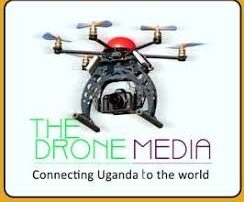Ministry of health faults on journalists
There are dirty deals transacted at Ministry of Health, which make officials there uncomfortable so if they allow the “big mouth,” “eye of the eagle” journalists, such deals will expose the corrupt officials. This is the main reason, the ministry wants a selected squad of journalists, who will agree with them on how to share the loot.
An example is the deal of facemasks; there are those made in UAE (Dubai) and those locally made. It is obvious that whoever procured or allowed the procurement of facemasks aimed at swindling taxpayers money. Otherwise, why would you import facemasks from UAE when Ugandans make good ones which even last long. This and many dirty deals are causes of restrictions to journalists at Ministry of Health.

Can a journalist get access to all information held by public bodies?
No. The right of access to information is not an absolute right. There may be some small
quantities of information that public bodies hold that would cause harm if they were
released, at least if released at this point in time. So although the right applies in principle to
all information, in fact there are exceptions.
For example, to release all information about an ongoing police criminal inquiry might harm
the possibility that the police will catch the criminal suspect. After the enquiry is finished and
the criminal arrested, the information can be released without it causing any harm.
This is an example of information being withheld to protect what is known as a “legitimate
interest”. To justify withholding information public bodies must demonstrate that there
would be harm to a predefined interest specified by law.
The common grounds for exceptions found in access to information laws fall into the
following three groups:
Exceptions to protect state interests:
Protection of national security and defence of the state;
Protection of international relations;
Protection of public safety or public order;
Protection of the economic, monetary and exchange rate policies of the state;
Protections aimed at ensuring effective government:
protection of internal deliberations within public authorities prior to decision-making
– this is known as the “space to think” exception;
Protection of criminal investigations;
Exceptions to protect private interests, human rights and other rights:
Protection of privacy and other legitimate private interests;
Protection of commercial and other economic interests, such as protecting trades
secrets or the ability of a private company to compete effectively in the marketplace;
protection of the environment [such as locations of endangered species];
guaranteeing the equality of parties in court proceedings or the effective
administration of Justice
